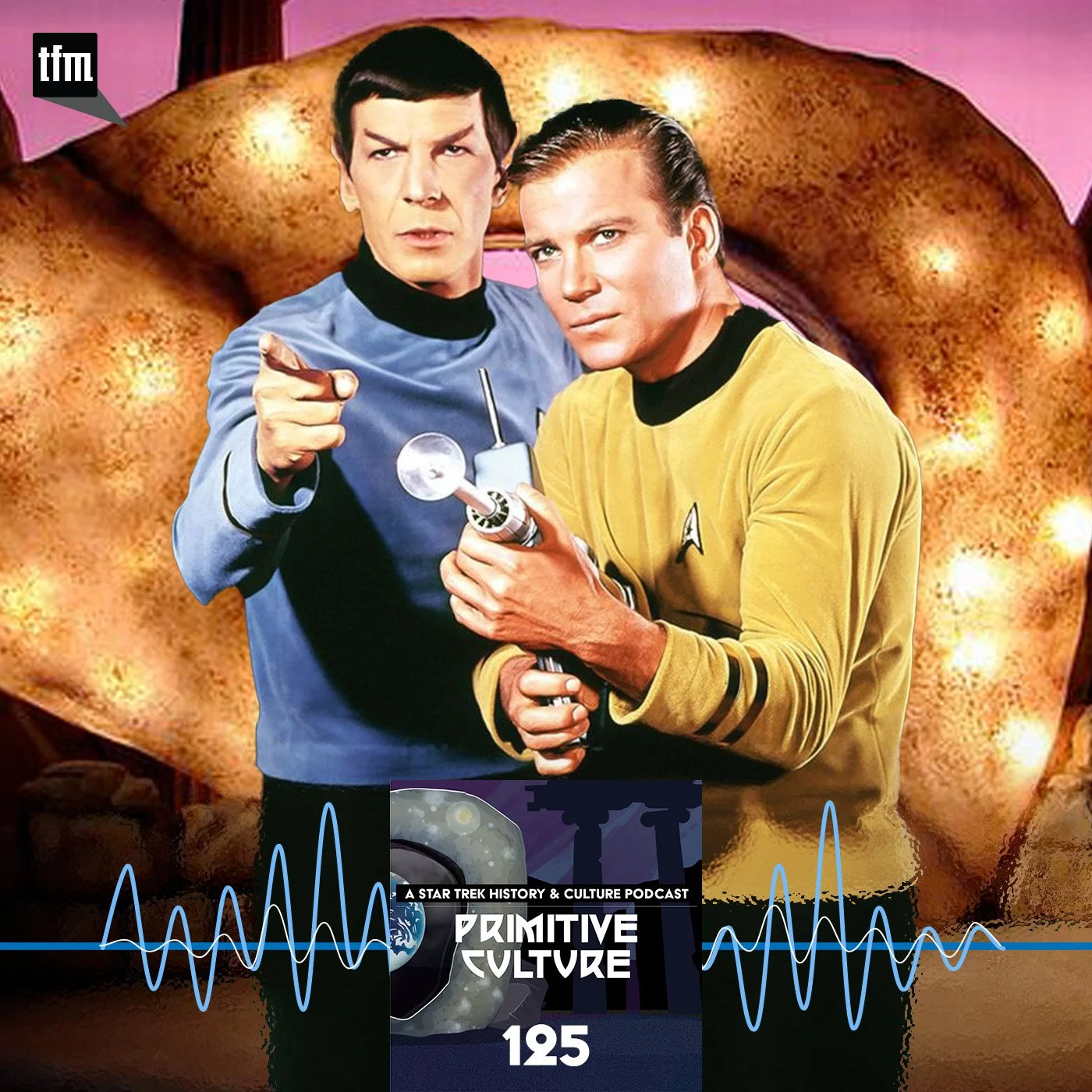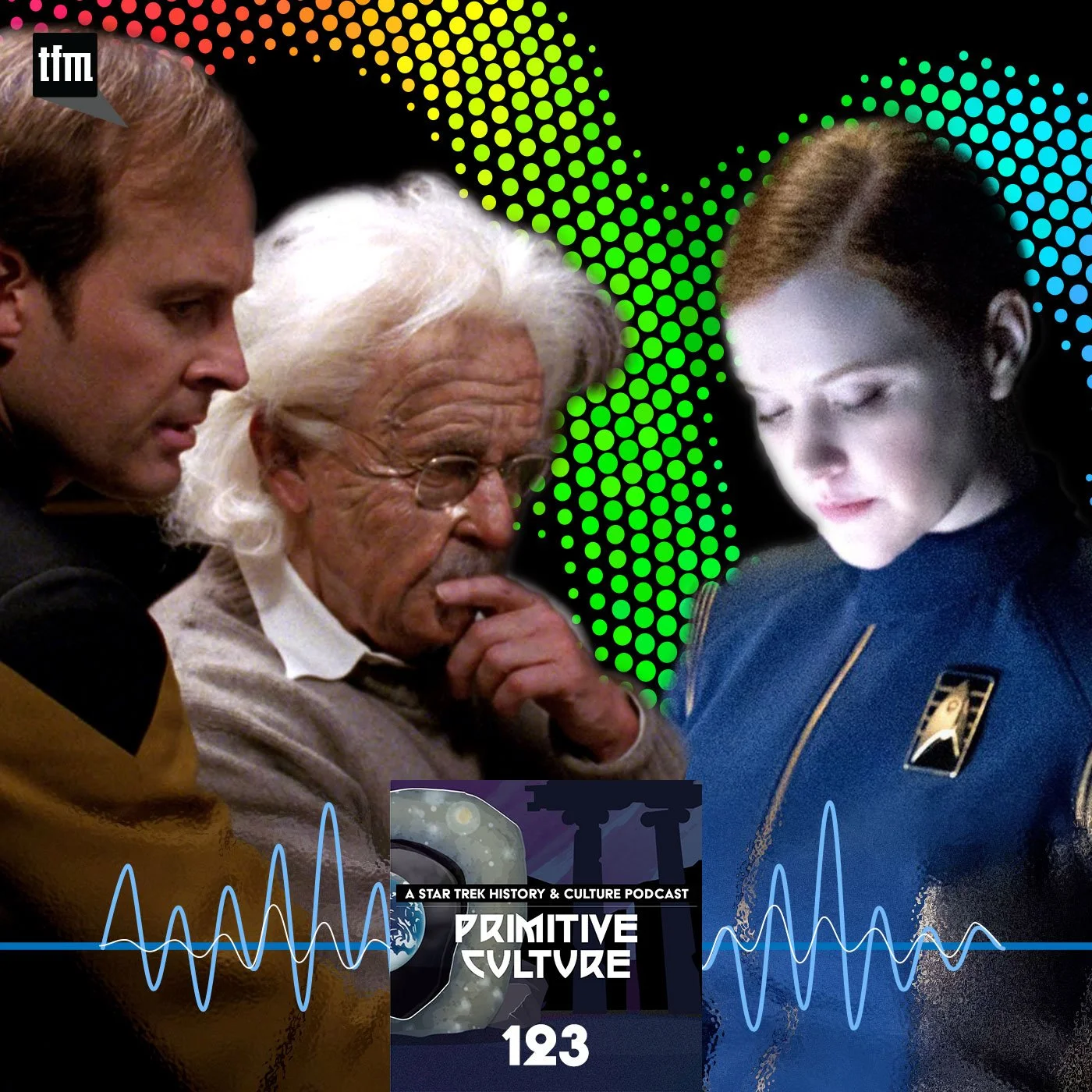The original reset button.
Running Time: 1 hour 39 minutes 30 seconds
Download / RSS / Send us a message / Discuss the show / Support Trek.fm
It’s one of the oldest of literary tropes: a sudden, last-minute reveal that an apparent fictional reality is actually doubly invented. From Alice’s Adventures in Wonderland on, writers have thrilled in pulling the rug out from under readers and characters alike, allowing carefully constructed scenarios to collapse like a house of cards as their protagonists awake from an alarmingly realistic fantasy. The medical drama St. Elsewhere went as far as to imply that its hundred-plus episodes were no more than a young boy’s daydreams, while Dallas famously reset an entire season of continuity when Pamela Ewing awoke to find her supposedly long-dead husband taking a shower.
In this episode of Primitive Culture, host Duncan Barrett is joined by Lee Hutchison to look at Star Trek’s responses to the dreamland trope, in episodes such as The Next Generation’s “Future Imperfect,” Deep Space Nine’s “The Search, Part II,” and Enterprise’s “Vanishing Point.” Why do some wake-up turnarounds leave the viewer feeling cheated, while others play as a brilliant coup de théâtre on the part of the writers? Is the ambiguity baked into episodes such as Voyager’s “Barge of the Dead” and DS9’s “Far Beyond the Stars” a cop-out or a smart creative move? And can we ever truly be sure that we’re awake and not still dreaming?
Chapters
Intro (00:00:00)
The Search (00:03:00)
Russian Doll Dreams (00:36:30)
It’s (not) Real! (00:43:10)
Unconscious Catharsis (01:14:00)
Host
Duncan Barrett
Guest
Lee Hutchison
Production
Duncan Barrett (Editor and Producer) C Bryan Jones (Executive Producer) Matthew Rushing (Executive Producer)











